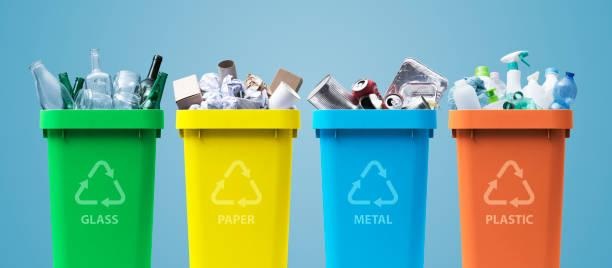Proper junk and waste disposal is crucial for maintaining public health, protecting the environment, and conserving natural resources. As our societies grow and consumption increases, the volume of waste we generate also rises. Proper disposal methods ensure that waste is managed in a way that minimizes its negative impacts on our world. This article explores the significance of proper junk and waste disposal, the methods used, and the benefits of responsible waste management practices.
Why Proper Waste Disposal Matters
- Environmental Protection: Hazards occur if waste is not disposed of properly. Since waste can harm the environment in a big way, specific methods are necessary for its disposal. Flux of electronic waste releases chemical substances in the soil through absorption into the ground water and plastic wastes are often chucked into oceans where they negatively impact aquatic animals. The regular disposal methods assist in avoiding such environmental harm. Click here to read more.
- Public Health: The wastes attract pests and disease-causing organisms which may cause health risks to human beings. This has implications in the spread of diseases and creation of health risks due to poor disposal. Some of these complications include that they are eradicated through appropriate waste management measures which include collection and proper disposal that is always clean.
- Resource Conservation: A lot of things that people discard can be reused or recycled. Many things, which are considered as waste, can be utilized in another way. Concerning the amount and rate, adequate disposal makes it possible to develop methods of recycling and reusing the materials instead of virgin resources.
- Aesthetic and Community Well-being: Waste disposal helps in maintenance of public places and ensuring that the places are not harboring junk. This adds value to the lives of people and where implemented results in better and more attractive living and working environments.
Methods of Proper Waste Disposal
- Recycling: Recycling entails the use of waste material to produce other useable product. Some of the most frequently recycled are paper, glass, metal, and particular types of plastic. Recycling prevents the amount of waste that is taken to land fill dumps and reduces the need for virgin materials.
- Composting: Some examples of item that can be recycled are food waste like leftovers or vegetable cuttings, and likewise the cuttings from yards in the form of grass, twigs, etc. Composting is the controlled process of the breakdown of organic matter and its subsequent reuse in the form of compost. This method is good for minimizing the receipt of waste to landfill as well as produce something useful in gardening and farming. Read this article to learn more.
- Landfills: A landfill is a planned and constructed waste disposal site whose major objective is to manage waste in an environmentally friendly way. The landfills that are in use today are lined and have leachate disposed of systems so as not to pollute the ground water. But landfilling is carried out as a final solution when the materials cannot be recycled or composted any further.
- Incineration: Waste incineration involves burning waste at high temperatures to reduce its volume and sometimes to generate energy. While this method can significantly decrease the amount of waste, it must be carefully managed to control emissions and prevent air pollution.
- Hazardous Waste Disposal: Hazardous waste, such as chemicals, batteries, and electronic waste, requires special handling and disposal methods to prevent environmental contamination and health risks. These materials should be taken to designated hazardous waste disposal facilities.
Benefits of Proper Waste Disposal
- Environmental Sustainability: Effective waste disposal also promotes sustainability because it helps to cut short any emission that is likely to harm the environment and conserve resources thereby making the impact of man’s activities on the environment as small as possible. Of those, recycling and composting are most valuable to further the cause of developing a closed loop that will imbue materials with usage infinitely.
- Health and Safety: It’s our responsibility to collect waste then ensure it is disposed of properly in a way that will prevent disease-causing organisms or accidents related to waste from prevailing. This results to healthier communities and living standards thus enhancing the safety of societies.
- Economic Benefits: This paper seeks to establish that good management of waste can lead to production of economic benefits. Recycling businesses, waste management agencies, and composting businesses create employment, and boost the economy. Also, reuse means that the item does not have to be manufactured starting with the raw materials, which saves expenses.
- Compliance and Reputation: Proper waste disposal is often regulated by laws and guidelines. Professional waste and junk removers like Sways Junk Removal adhering to these regulations helps avoid legal penalties and enhances the reputation of businesses and communities committed to environmental responsibility.
Conclusion
Management of waste products is a critical aspect that must always be considered in society. It is cost effective, sustainable, pro-environment, pro resource, pro population, and health and pro-life in the context of the quality of our existence. The proper handling of waste and its management also creates alliances and productive cooperation between people, companies, and the government to help improve living conditions and bring more positive changes in society. Working on waste disposal, we also hold a much broader understanding of such cleanliness: it saves not only our today’s world, but also the future of our planet and generations.
